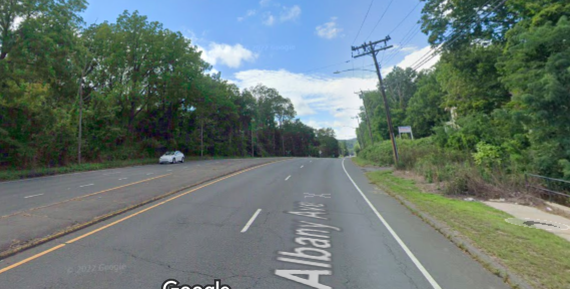“In order to invest in a new vision, and a new way of living, we have to believe in each other and our capacity to create something better. Our belief in human potential must outweigh our fear of human failure. Our imagination must be courageous.”
– Kelly Hayes & Mariame Kaba in Let This Radicalize You
It is about time that the rest of the world is catching up to radical joy and climate optimism.
This Saturday, definitely the latter and likely some of the former will be woven into several of the events at the International Festival of Arts & Ideas in New Haven. It’s not the speakers who are just now showing up, to be clear. It’s that there’s more of a mainstream platform. I’m not going to ask what took everyone so long, but instead say welcome.
The talks on Saturday are free to attend and just a train ride and short walk or bus ride away.
Radical joy, like climate optimism, is a newer idea for some. It’s at times phrased as “Black joy” or “Queer joy” or “Jewish joy” but I think radical joy works in the same way and links them all in that there are those in power who benefit from the average person existing largely in a fog of some combination of lazy cynicism, numbness, despair, fear, and paralysis. Who benefits when we believe that our histories are only sadness and trauma? In this context, radical joy is a form of resistance. It is as much a type of activism as marching in the streets or making art. It’s refusing to be broken. It’s rebelling against the pressure to drown in overwhelm. To paraphrase R. Ariana Katz and R. Jessica Rosenberg, it’s deciding to shift rather than perpetuate trauma narratives.
If it helps, think of it as being joyful to spite others.
It’s not that fresh of an idea either. You’ve heard it as “living well is the best revenge.” Not the exact same idea, but close enough.

These ideas are linked.
If you’re flailing around in despair over anything, really, for a prolonged period, are you taking any action or are you decidedly inactive, having determined that nothing you do matters? Have you mentally checked out from being part of the community, choosing endless television and scrolling over any kind of actual participation? (Participation could be marching but could also be managing a little free pantry or calling elected officials or organizing beach cleanups or asking environmental organizations to include public transit directions to their events; it does not need to be loud) Does that persistent despair take the shape of seeing that there is no single action that will solve everything rapidly, so why even try?
Climate optimism is challenging because it does not give you a free pass to dwell on the possibility of failure. It does not allow for a mindset of “this is how we got it wrong before, and we can only ever expect people to keep getting it wrong.”
Do yourself a favor and make that trip to New Haven on Saturday for at least two of the free talks. Failing that, listen to this interview which is free and does not require you to leave your house.
When I started the ConnectiCUT Book Club, it was largely to help people access counter-narratives. Many of the best known climate writers have been doom and gloom, best known transportation and urbanism writers one-dimensional, and the common thread has been no diversity in whose voices get the most air time. What I’ve found, unsurprisingly, is that when you break away from the overrepresented groups, you get more possibility. Reading more (or for some folks, any) books by female, nonbinary, queer, and BIPOC authors is what exposes us to ideas like those at the top of this post.
This is another way into connection and participation: go look over to the ConnectiCUT Book Club page and sign up to get updates, and next week vote on the next meeting date and on upcoming texts.

